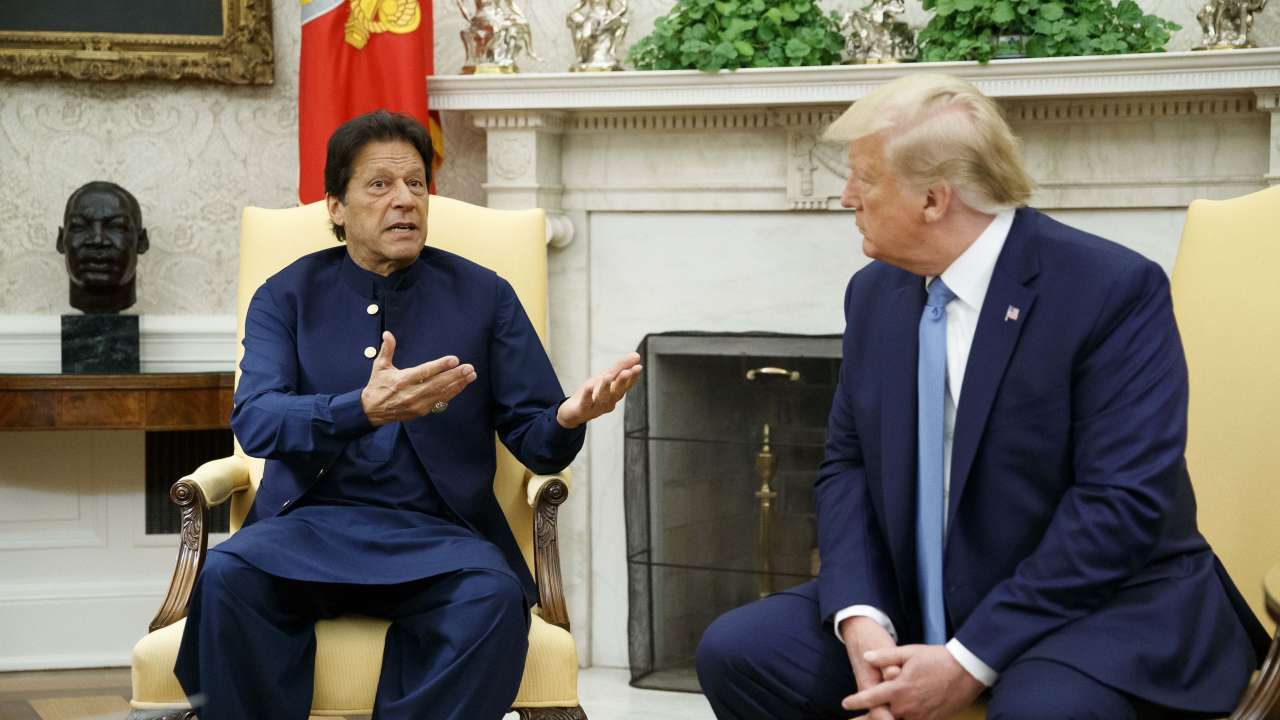
Not for nothing is President Donald Trump the original cowboy – he shoots from the hip. His statement at a meeting with visiting Pakistani Prime Minister Imran Khan, offering to mediate in the Kashmir conflict, has set the stage for a diplomatic tug-of-war between India and Pakistan involving the world’s sole superpower.
“If I can do anything to help, let me know,” he said in typical American speak. What has added grist to the mill is Trump’s patently false claim that Prime Minister Narendra Modi asked him to arbitrate on the Kashmir issue. As far as Trump is concerned, the meeting with Imran was, therefore, saying the right thing at the right place at the right time!
New Delhi has stated its traditional position quickly; Prime Minister Modi made no such offer and Kashmir is a bilateral issue between India and Pakistan. While Trump’s keenness to play the mediator has enthused many, India is understandably less keen.
Traditionally, American Presidents have stayed clear of offering intervention on Kashmir, respecting India’s sensitivities in the matter, by and large recognising that it is a bilateral issue between the two countries. Yet, there have been precedents when India and Pakistan have allowed a third party to help resolve their issues. Both in international law and diplomacy, mediation often denotes a ‘friendly interference’ of a neutral state in the controversies of other nations.
If we look at India-Pakistan disputes, both nations were able to reach agreements through third-party mediators, at least in the case of the Indus Waters Treaty and the Rann of Kutch accord. While the former was brokered by the World Bank, the latter, mediated by Britain, persuaded the combatants to end hostilities and establish a tribunal to resolve the dispute.
Similarly during the 1965 Indo-Pakistan war, the then USSR-led placation efforts paved the way for India and Pakistan to withdraw forces from each other’s territories. This was followed by signing of the Tashkent Declaration in Uzbekistan.
Imran, quick to notice a shift in the traditional American position on Kashmir, jumped at the offer like his many of his predecessors. It would be instructive to remember, however, that Kashmir cannot be compared to the Indus Waters arbitration or the Rann of Kutch accord or even the 1965 Indo-Pakistan war mediation. Any negotiation under the threat of nuclear blackmail and crossborder terror will be unacceptable to India.
New Delhi rightly argues that mediation has no chance of working better than bilateral agreements, like the Simla Agreement of 1972 that both sides agreed to respect but Pakistan blatantly violated, leading to the Kargil War in 1999. From India’s standpoint, Kashmir remains an internal problem and it is up to the main stakeholders in New Delhi and Srinagar to hammer out an understanding.
The days of third-party intervention, at least in the case of Kashmir, are long gone. Surprising that Trump was not briefed about it.